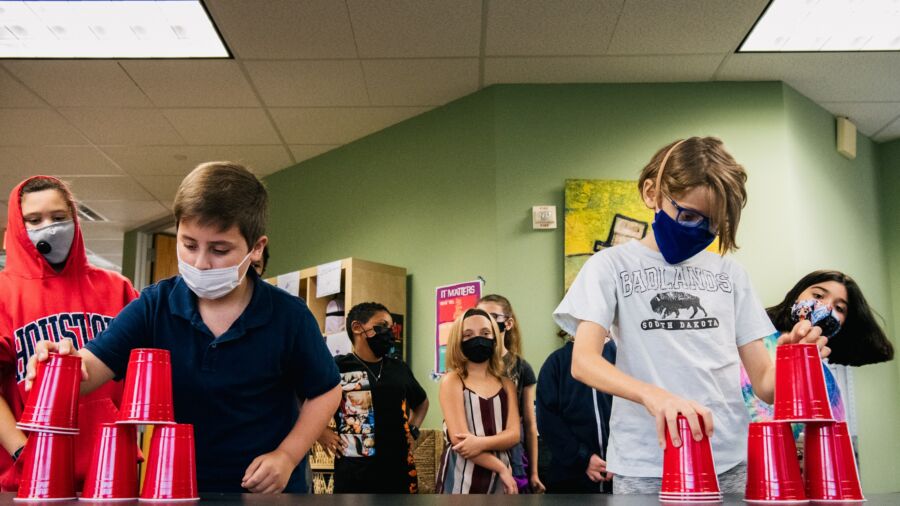Mask wearing for children during the COVID-19 pandemic had no impact on the spread of the virus, says a recent study conducted by several independent medical researchers.
The study, headed by Johanna Sandlund, MD, of Stanford Medicine, performed a systematic review to assess prior research on the effectiveness of mask-wearing in children, with the results published in the British Medical Journal (BMJ) on Dec. 2.
The study also included a risk-of-bias assessment performed by two independent entities.
The study’s authors performed database searches up to February 2023, screening nearly 600 studies, 22 of which were included in the final analysis.
It concluded that no substantial evidence exists that would warrant mask mandates for children nor showed reduced transmission or infection.
Child mask mandates were used extensively as a public health measure during the COVID-19 pandemic to minimize virus transmission.
However, any recommendations thereof appear to be based solely on mechanistic and observational data, without associated systematic reviews assessing the evidence, as there were no randomized controlled trials in children assessing the benefits of mask wearing to reduce COVID-19 infection or transmission, the study revealed.
It further states that 16 out of the 22 final studies found no effect of mask wearing on infection or transmission, while six studies showed critical or serious risk of bias.
“Because benefits of masking for COVID-19 have not been identified, it should be recognised that mask recommendations for children are not supported by scientific evidence,” the report says.
Mask mandates for children have been one of the most polarising measures implemented during the pandemic.
The study found that two previous reviews on masking listed in the Cochrane Library also did not yield any results pertaining to the prevention of upper respiratory infections and showed no benefit against infection or transmission overall.
While most countries have removed all public mask mandates, the Centers for Disease Control and Prevention (CDC) continues to recommend masking down to the age of two despite the recommendation being entirely based on observational data, the study states.
What it fails to do, however, is to consider the potentially detrimental psychological effects on children’s behavior. Young children are especially vulnerable, as masking not only affects speech and language ability and learning but also has a broader psychological impact.
The report further states that speech is not limited to merely uttering words but incorporates mouth movements and facial gestures. These accelerate word recognition and speech comprehension, which make them a crucial factor for speech perception and the subsequent ability of children to communicate, understand, and show emotion.
In addition to the psychological factors, the study highlighted several physical conditions that could result from wearing masks, including symptoms such as breathing difficulties, headaches, dermatitis, general discomfort, and pain.

